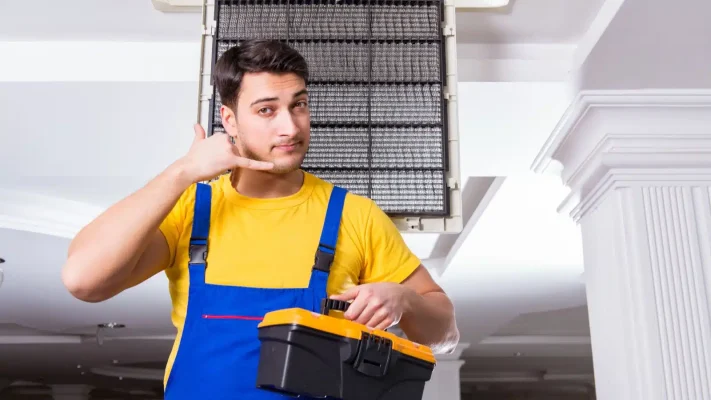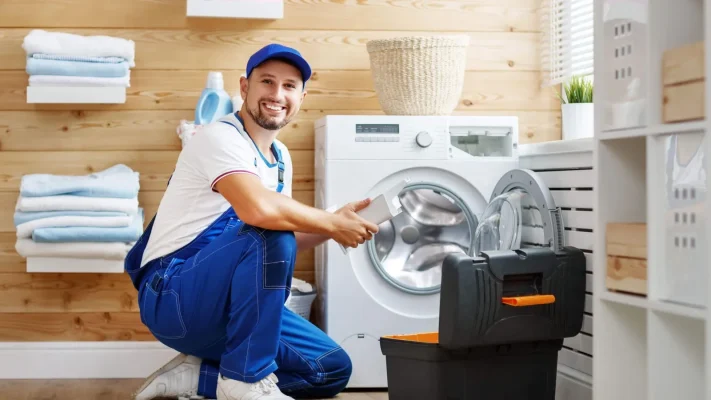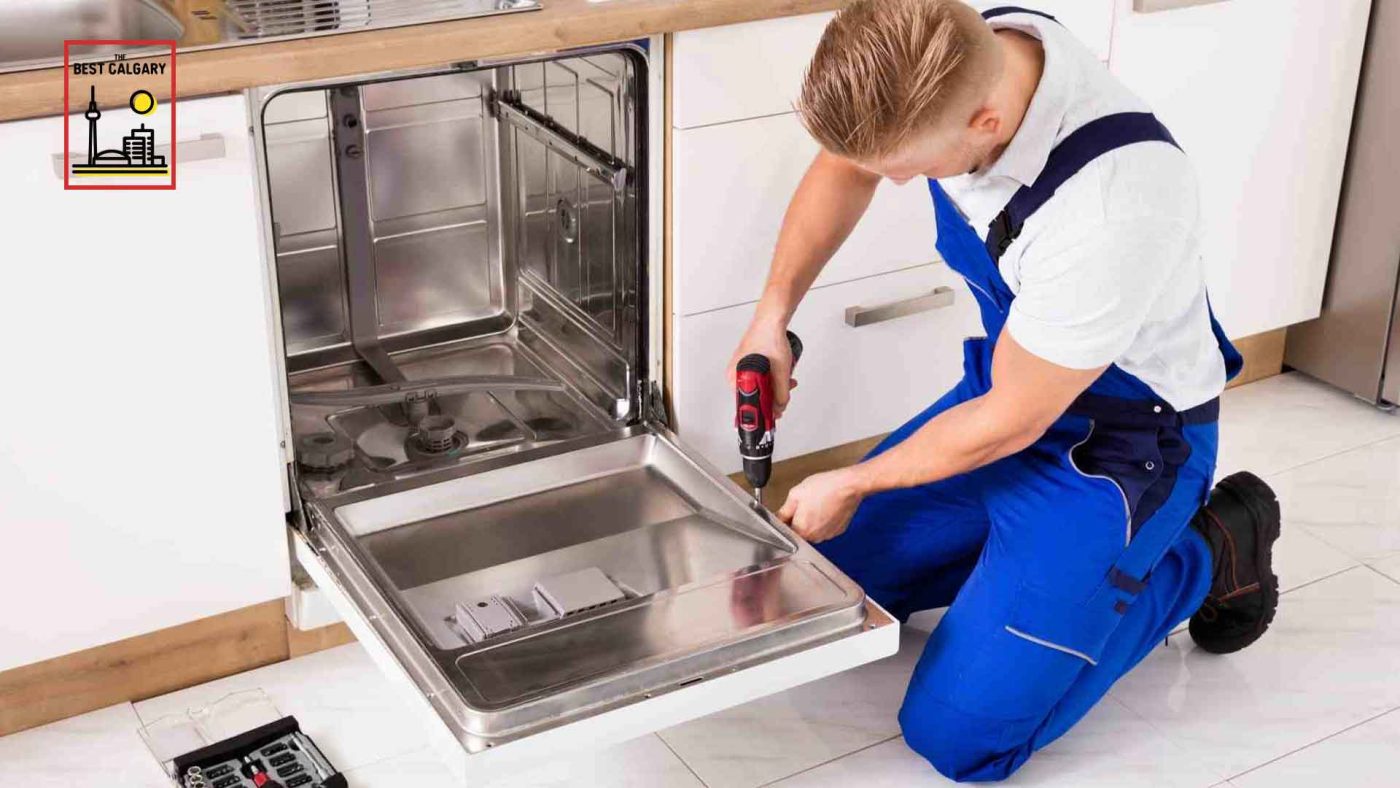In an era of YouTube tutorials and DIY culture, fixing household appliances yourself can be a tempting way to save money. Whether it’s a washing machine that won’t drain or a refrigerator that’s not cooling, there are plenty of simple fixes that many homeowners can handle with basic tools and a little research. However, knowing when to tackle an appliance issue yourself and when to call a professional is key to avoiding further damage or voiding a warranty.
In this guide, we’ll walk through common appliance issues that you can likely fix on your own and highlight situations where it’s best to bring in an expert.
Simple DIY Repairs You Can Tackle
For some appliance problems, a quick fix can get everything back in working order. Here are a few common appliance issues that you can safely handle yourself.
Cleaning Refrigerator Coils
One of the most frequent issues with refrigerators is inefficient cooling, and often, the problem can be traced back to dirty condenser coils. These coils are typically located behind or underneath the fridge and can collect dust, dirt, and pet hair over time. When the coils are covered in debris, the refrigerator has to work harder to keep cool, which can lead to higher energy bills and potential damage over time.
To fix this issue, unplug the refrigerator and carefully clean the coils with a vacuum cleaner or a soft brush. This simple maintenance task can restore your refrigerator’s cooling efficiency and prolong its lifespan. Regularly cleaning the coils—every six months or so—will prevent more serious problems down the line.

Replacing a Washing Machine Hose
Leaky washing machine hoses are another common and easy-to-fix issue. Over time, the rubber hoses that connect your washing machine to the water supply can wear out, leading to water leaks that can damage your floors or walls. Replacing a damaged hose is a straightforward job.
To replace the hose, turn off the water supply and disconnect the old hose from the back of the washing machine and the wall. You can purchase a new hose from any home improvement store—consider using stainless steel braided hoses for better durability. Once you’ve installed the new hose, make sure all connections are secure and turn the water supply back on.
Cleaning Dryer Lint and Vents
One of the simplest yet most important DIY tasks you can perform is cleaning your dryer’s lint filter and vent. A clogged lint filter not only makes your dryer less efficient, but it also poses a serious fire hazard. After every load of laundry, clean the lint filter to ensure proper airflow.
You should also clean the dryer vent every few months. Over time, lint can accumulate in the vent duct, which can block airflow and cause the dryer to overheat. Use a dryer vent cleaning kit or a vacuum attachment to remove any lint buildup in the vent hose and exhaust duct. Keeping the vent clean will help your dryer work more efficiently and reduce the risk of a fire.
Replacing an Oven Heating Element
If your electric oven isn’t heating properly or isn’t heating at all, the heating element may be burned out. Replacing a faulty heating element is a relatively easy repair that most homeowners can handle themselves.
First, unplug the oven or turn off the circuit breaker to ensure your safety. Remove the screws holding the old heating element in place and disconnect the wires. Install the new heating element by connecting the wires and securing it with screws. Turn the oven back on and test the new element to make sure it’s heating properly.
Fixing a Leaky Dishwasher
A leaking dishwasher can be caused by a variety of issues, but in many cases, it’s something you can fix on your own. Start by checking the door gasket for signs of wear or damage. If the gasket is cracked or loose, replace it with a new one to ensure a tight seal.
If the gasket isn’t the problem, check the spray arms and make sure they’re not clogged with debris. Sometimes, food particles can block the spray arms, causing water to spray in the wrong direction and leak out of the dishwasher. Simply remove the spray arms and rinse them under running water to clear any blockages.
When It’s Time to Call a Professional
While many appliance repairs are simple enough for homeowners to handle, there are certain situations where it’s best to leave the job to a professional. Attempting to fix a complicated issue without the right tools or expertise can lead to further damage, more expensive repairs, or even safety risks.
Here are some situations where you should call a professional:
Refrigerant Leaks in Air Conditioners or Refrigerators
Refrigerant is the cooling substance used in air conditioners and refrigerators, and a leak can significantly impact your appliance’s performance. Not only does handling refrigerant require special tools, but it’s also a regulated substance that can be harmful to the environment if released improperly.
If you suspect a refrigerant leak—such as hearing a hissing sound, noticing poor cooling, or finding ice buildup on the evaporator coils—contact a certified HVAC or appliance repair technician. They will have the proper equipment to locate the leak, repair it, and recharge the system with the correct amount of refrigerant.
Electrical Issues
Appliances that require electrical repairs, such as issues with wiring, circuits, or control boards, should always be left to a licensed technician. Attempting to repair an appliance’s electrical components without the proper knowledge can lead to electrical shocks, further damage to the appliance, or even fires.
If your appliance is frequently tripping the circuit breaker, won’t power on, or shows signs of faulty wiring (such as burn marks or a burning smell), it’s time to call in a professional. Electrical repairs often require specialized tools and expertise that DIYers typically don’t have.
Gas Appliances
If you have a gas-powered appliance like a stove, oven, or water heater, any repairs involving the gas line should be handled by a licensed professional. Gas leaks are extremely dangerous, and even a small mistake during a repair can lead to explosions, fires, or carbon monoxide poisoning.
Signs of a potential gas leak include the smell of sulfur or rotten eggs, hissing sounds, or a pilot light that won’t stay lit. If you suspect a gas leak, turn off the gas supply immediately, ventilate the area, and call a professional for repair.

Complicated Appliance Repairs
Certain appliance issues, such as a malfunctioning compressor in a refrigerator or a faulty transmission in a washing machine, require advanced tools and expertise that most homeowners don’t possess. These repairs can also be time-consuming and expensive, and attempting to fix them yourself may void your appliance’s warranty.
If your appliance requires specialized parts or if you’re unsure about the diagnosis, it’s best to contact a professional who has experience working with your specific brand and model. A professional repair technician can accurately diagnose the problem, source the correct parts, and perform the repair correctly the first time.
Warranty and Insurance Concerns
Most new appliances come with a manufacturer’s warranty that covers certain repairs for a specified period. If your appliance is still under warranty, attempting to fix it yourself could void the warranty, leaving you responsible for any future repairs or replacement costs.
Always check the terms of your warranty before starting any DIY repairs. If your appliance is still covered, contact the manufacturer or an authorized service provider to handle the repair.
Additionally, some home insurance policies may cover certain appliance repairs. Before attempting to fix an appliance yourself, check with your insurance provider to see if they offer any coverage for the repair.
How to Choose the Right Repair Professional
When it’s time to call a professional for an appliance repair, it’s important to choose a reputable and qualified service provider. Here are a few tips to help you find the right technician:
- Check for licensing and certification: Make sure the technician is licensed and certified to repair your specific appliance type. In some areas, repair technicians must hold specific licenses for handling refrigerants or working with gas appliances.
- Read reviews and ask for recommendations: Online reviews can provide valuable insights into the quality of service provided by a repair company. Ask friends, family, or neighbors for recommendations based on their own experiences with appliance repairs.
- Ask about warranties and guarantees: A reputable repair service should offer warranties on both parts and labor. This ensures that if the problem isn’t resolved or if the part fails after the repair, the technician will come back to fix it at no additional cost.
- Compare estimates: Don’t be afraid to get multiple estimates from different repair companies. This will help you gauge the average cost of the repair and ensure you’re getting a fair price.
Whether it’s a simple DIY fix or a job for a professional, maintaining your home appliances is key to extending their lifespan and avoiding expensive replacements. By knowing your limits and seeking help when necessary, you can ensure your appliances stay in top working condition for years to come.

Please read more articles, this is the content you need:
The Importance of Regular Maintenance in Preventing HVAC Repairs
Heating, ventilation, and air conditioning (HVAC) systems are vital for maintaining comfortable indoor environments year-round. [...]
Sep
How to Fix Your Broken Tablet: DIY vs. Professional Repairs
Tablets have become essential gadgets for both personal and professional use, offering the convenience of [...]
Sep
How to Maintain Your Appliances to Avoid Expensive Repairs
Home appliances are an integral part of daily life, making everything from laundry to meal [...]
Sep
DIY Appliance Repair: When to Call a Professional
In an era of YouTube tutorials and DIY culture, fixing household appliances yourself can be [...]
Sep